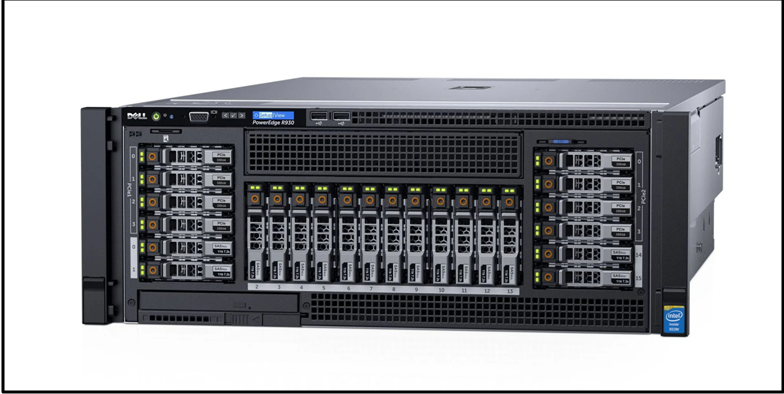BUSINESS
Profiles of Professionals: What Makes a Good Business Leader

The qualities and attributes that define good business leaders are often the subjects of books, seminars, and corporate retreats. With business environments evolving at a breathtaking pace, the characteristics that make an effective leader today could pave the way for innovations tomorrow. Yet, certain timeless traits stand out across generations, illustrating a blueprint for successful leadership. Good business leaders inspire, innovate, and influence. Below, we articulate what cultivates stellar leadership in the increasingly intricate world of business.
Defining the Qualities of an Effective Business Leader

An effective business leader is often seen as someone who can make tough decisions, articulate clear goals, and inspire their team to achieve great results. They possess an intrinsic ability to understand the big picture while attending to the minute details that are crucial for a company’s success. These individuals are not only goal-oriented but are adept at strategic planning, anticipating the impact of their decisions on the company’s future.
Communication is a linchpin quality for any successful leader. Good leaders are clear, concise, and transparent in their interactions with their teams. They have the capability to listen actively, which helps in building trust and reduces misunderstandings. Moreover, they ensure that the line of communication is always open, encouraging feedback and fostering an atmosphere of open dialogue.
Integrity and accountability are paramount. Leaders who exhibit these traits create a trustworthy environment that galvanizes the entire organization. In this context, the story of Perry Mandera, a recognized business leader, underscores the importance of upholding a strong moral ethos and being responsible for one’s actions, setting a tone that reverberates through the company.
Balancing Emotional Intelligence (EQ) With Decisive Action

EQ is a critical component in the toolkit of a modern business leader. A high EQ allows leaders to understand and manage their own emotions, as well as to empathetically perceive the feelings of their colleagues and employees. This understanding leads to more harmonious workplaces and can also contribute to better decision-making processes.
Leaders with strong emotional intelligence are adept at conflict resolution and managing workplace dynamics. They use their emotional acuity to navigate challenging situations and support their team members. This human-centered approach to leadership can foster loyalty and a strong, cohesive team culture.
However, the potency of EQ must be harmonized with the ability to take decisive action. Leaders must not only be understanding and empathetic but also decisive and confident in their decisions. The balance of these qualities often results in sound judgment and a firm direction for the company to follow.
How Good Business Leaders Foster a Culture of Innovation

Innovation is the lifeblood of any competitive business, and fostering an innovation-friendly environment is integral to strong leadership. Leaders who encourage creativity often create spaces where ideas are not only welcomed but actively sought. They understand that true innovation comes from a willingness to challenge the status quo and embrace change.
A culture of innovation begins with a mindset, one that’s cultivated by leaders who value exploration and learning. These leaders are willing to invest in their employees by providing them with the tools and resources needed to pursue innovative projects. They know that not every venture will be successful but believe that each attempt is a stepping stone towards progress.
Leaders dedicated to innovation also understand the importance of failure as part of the learning process. They refrain from penalizing their employees for mistakes, instead encouraging them to see these moments as opportunities for growth. This approach not only nurtures innovation but also helps build resilience within the team.
The Importance of Adaptability and Learning in Leadership
The business world is ever-evolving, and the ability to adapt is a non-negotiable trait for any leader. Adaptability encompasses a willingness to face new challenges and to change course when necessary. The best leaders are those who can pivot in the face of unforeseen events, turning potential threats into opportunities for growth.
Good business leaders are lifelong learners. They have an innate curiosity that drives them to continuously expand their knowledge and skills. This commitment to learning equips leaders to better tackle new trends, emerging technologies, and shifts in market dynamics. It also sends a powerful message to their teams about the value of education and openness to change.
Altogether, stellar leadership is multifaceted, encompassing a diverse array of qualities that range from strong communication and integrity to adaptability and a commitment to innovation. Overall, it is these characteristics, when harmonized effectively, that form the bedrock of successful leadership and sustain business growth and resilience in an ever-changing global marketplace.
BUSINESS
Unlocking the Secrets of Calesshop: A Comprehensive Guide

Welcome to the exciting world of Calesshop, a shopping platform that has been turning heads and changing the way we shop online. If you’re looking for a unique experience that combines convenience with an extensive range of products, you’ve landed in the right place. With its user-friendly interface and innovative features, Calesshop is quickly becoming a favorite among savvy shoppers everywhere. Whether you’re hunting for trendy fashion items or must-have gadgets, this guide will walk you through everything you need to know about navigating and maximizing your experience on Calesshop. Get ready to discover what makes this platform stand out from the rest!
History and Evolution of Calesshop
Calesshop began as a small online marketplace, catering to niche products that mainstream platforms overlooked. Launched in the early 2010s, its founders envisioned a space where unique items could thrive alongside everyday essentials.
As user demand grew, so did Calesshop’s offerings. The platform quickly expanded into various categories, from fashion to electronics. This evolution was driven by an unwavering commitment to customer satisfaction and innovation.
Over the years, Calesshop has embraced technology advancements. Implementing AI-driven recommendations transformed how users discover products tailored just for them.
The introduction of mobile shopping further revolutionized accessibility. Now shoppers can browse and buy with ease from anywhere at any time.
With each milestone, Calesshop has kept its core values intact: quality service and community engagement remain at the forefront of its mission as it continues to evolve in an ever-changing market landscape.
What Sets Calesshop Apart from Other Shopping Platforms?
Calesshop stands out in the crowded e-commerce space due to its user-centric design. The platform prioritizes simplicity and ease of navigation, allowing customers to find what they need without hassle.
Another key feature is the curated selection of products. Unlike many platforms that offer everything under the sun, Calesshop focuses on quality over quantity. This means shoppers can trust that they are browsing top-tier items tailored to their needs.
Additionally, Calesshop fosters a sense of community among users. Through interactive forums and customer reviews, shoppers can share insights and experiences while making informed decisions.
Moreover, personalized recommendations enhance each shopping experience. Advanced algorithms analyze user behavior to suggest relevant products based on past purchases or interests.
These unique elements create an engaging environment for both buyers and sellers alike, setting Calesshop apart from conventional online marketplaces.
How to Use Calesshop: Step-by-Step Guide
Getting started with Calesshop is a breeze. First, visit the website and create an account. You’ll need to provide basic information like your email address and a secure password.
Once logged in, browse through various categories or use the search bar for specific items. The intuitive layout makes finding what you need simple.
When you find a product that catches your eye, click on it for detailed information. Here, you can view images, read descriptions, and check reviews from other customers.
Ready to purchase? Just add the item to your cart. When you’re done shopping, head over to checkout. Fill in shipping details and choose your preferred payment method.
After placing your order, you’ll receive a confirmation email with tracking details. It’s that easy!
The Benefits of Using Calesshop
Using Calesshop opens the door to a seamless shopping experience. The platform is designed with user convenience in mind, making navigation simple and intuitive.
One of the standout benefits is its vast selection of products. From niche items to everyday essentials, Calesshop caters to diverse tastes and needs. This variety ensures that shoppers can find exactly what they’re looking for without sifting through endless options.
Another advantage lies in competitive pricing. Shoppers often discover deals that make their purchases more affordable than traditional retail outlets.
Moreover, Calesshop prioritizes customer satisfaction with reliable support services. Users can enjoy peace of mind knowing assistance is readily available if needed.
The community aspect shouldn’t be overlooked either; users can engage with fellow shoppers, sharing tips and recommendations that enhance the overall experience on the platform.
Tips for Maximizing Your Experience on Calesshop
To truly enhance your time on Calesshop, start by setting up a detailed profile. Highlight your interests and preferences to receive personalized recommendations.
Take advantage of the search filters. Narrow down options based on categories, price ranges, or user ratings for quicker navigation.
Engage with the community. Join forums or discussions related to products you love. Sharing experiences can lead to valuable insights and hidden gems.
Don’t forget about promotions and discounts. Regularly check their offers to snag great deals that suit your shopping needs.
Keep an eye on new arrivals. Calesshop frequently updates its inventory, so staying updated ensures you’re among the first to discover exciting items!
Future Plans and Innovations for Calesshop
Calesshop is on the brink of exciting advancements that promise to reshape the online shopping experience. The team is actively exploring AI-driven personalized shopping recommendations, making it easier for users to find products tailored specifically to their tastes.
Additionally, enhancements in augmented reality (AR) are being tested. This innovation could allow customers to visualize products in their own space before purchasing, bridging the gap between virtual and real-world experiences.
Sustainability is also a top priority. Calesshop plans to implement eco-friendly packaging initiatives and partner with brands committed to sustainable practices, appealing to environmentally conscious consumers.
The future holds a mobile app launch with advanced features for seamless browsing and checkout. With these innovations on the horizon, Calesshop aims not only to stay competitive but also elevate customer satisfaction through cutting-edge technology.
Conclusion
Calesshop has proven itself as a dynamic player in the e-commerce landscape. With its unique features, extensive product range, and user-friendly interface, it caters to diverse shopping needs effectively. Whether you are looking for everyday essentials or specialty items, Calesshop offers something for everyone.
As you explore this platform, you’ll discover how easy it is to navigate and find what you’re searching for. The benefits of using Calesshop extend beyond mere convenience; they encompass savings and an enhanced shopping experience too.
Looking ahead, Calesshop seems poised for growth and innovation. Continuous updates promise even better services tailored to meet consumer demands. So whether you’re a seasoned shopper or new to online purchasing, there’s never been a better time to dive into what Calesshop has to offer.
Your next great find might just be a click away!
BUSINESS
Find the Best Server Deals for Your Business Needs | Top Tips

How to Find the Best Server Deals for Your Needs
In today’s fast-paced digital world, having a reliable server is crucial for businesses, developers, and tech enthusiasts alike. Whether you’re setting up a new business infrastructure, upgrading your current system, or simply exploring different server configurations, finding the best server deals can make all the difference. However, with countless options available, navigating the market can be overwhelming. That’s why we’ve put together this comprehensive guide to help you secure the best deals tailored to your needs.
Understanding Your Server Requirements
Before jumping into the world of server deals, it’s essential to evaluate your needs. Just like any other tech purchase, understanding your requirements is the first step in making an informed decision. A server that works well for one business might not suit the needs of another. So, take the time to ask yourself the following:
- What is the primary purpose of the server? Are you hosting a website, managing databases, or running applications? Each of these functions may require different server specifications. For instance, a website hosting server will require less processing power compared to a high-performance server for large-scale applications.
- What performance specifications do you require? This includes considering the processor speed (CPU), the amount of RAM (random access memory), and the type of storage. If your business needs faster data access, SSDs (solid-state drives) are recommended over traditional HDDs (hard disk drives). Also, don’t forget about bandwidth; the more traffic or data your business handles, the more bandwidth you’ll need.
- What level of security do you need? If you’re dealing with sensitive or confidential data, security should be a top priority. Look for servers that offer robust security features like encryption, firewalls, and data protection measures. Security breaches can be costly and detrimental to your business, so it’s important to get a server that’s up to the task.
- What is your budget? Define a budget range to filter your options more effectively. Servers can range from a few hundred dollars for basic models to several thousand for high-end configurations. Setting a budget will help you narrow down the possibilities and avoid spending more than you need.
Once you have a clear idea of your requirements, you can move forward with finding the best deals that match your needs.
Where to Look for the Best Server Deals
With numerous vendors offering server discounts, it’s important to know where to look. Finding the best deals often means doing a little bit of research across multiple platforms. Some of the top places to find server deals include:
- Manufacturer Websites – Dell, HP, Lenovo, and other well-known brands often have exclusive discounts available directly on their websites. These deals can range from limited-time promotions to discounts on refurbished models. Manufacturer websites usually offer the advantage of purchasing directly from the source, often with warranties and customer support options.
- Technology Marketplaces – Websites like Amazon, Newegg, and eBay can offer competitive pricing on refurbished and new servers. Sometimes, you’ll find a fantastic deal on a server bundle that includes additional accessories like networking equipment or storage drives.
- Specialized Server Deal Platforms – Platforms that focus exclusively on server hardware often offer curated deals. One such option is cloud ninja server deals, which provides high-quality refurbished servers at great prices. These platforms might also offer unique configurations tailored for specific industries or use cases.
- Tech Forums and Communities – Engaging with IT communities and forums can help you find hidden deals and recommendations. Many tech enthusiasts, developers, or IT professionals discuss the latest deals and discounts they’ve encountered, and you can often find valuable insights. Online forums like Reddit or specialized tech forums like Spiceworks are good places to start.
- Seasonal Sales & Promotions – Black Friday, Cyber Monday, and back-to-school promotions often feature great discounts on tech products. These sales events are a great time to snag a high-performance server at a fraction of the price, but keep in mind that stock may run out quickly, so act fast.
 Key Factors to Consider When Choosing a Server Deal
Key Factors to Consider When Choosing a Server Deal
Finding a great price is only part of the equation. It’s equally important to ensure that the deal provides value for your investment. After all, you don’t want to end up with a server that doesn’t meet your needs or fails to perform in the long run. Consider the following factors when evaluating server deals:
1. Performance & Reliability
The server should be powerful enough to handle your workload without lagging or crashing. Performance isn’t just about raw power; reliability is just as important. Your server should provide consistent performance over an extended period. Look for benchmarks and customer reviews to assess real-world performance. A deal that looks great on paper might not be as reliable in practice. Also, consider whether the server can handle future upgrades, such as additional storage or increased RAM, so that it doesn’t become obsolete too soon.
2. Warranty & Support
When you buy a server, especially for business use, you want to ensure that you’re covered if something goes wrong. Check if the seller offers a warranty, return policy, or technical support. A deal without a warranty might be too risky, especially for mission-critical tasks. Many manufacturers offer extended warranty options, which can provide peace of mind. Additionally, consider whether the seller offers 24/7 customer support in case of emergencies.
3. Scalability
As your business grows, your server should be able to scale with you. Opt for a model that allows for easy upgrades. For instance, if you anticipate needing more storage or better processing power in the future, make sure the server supports these upgrades. Many businesses outgrow their initial server setup, so purchasing a scalable server ensures you won’t have to replace your infrastructure entirely as your needs evolve.
4. Energy Efficiency
Servers consume a lot of power, and energy costs can add up over time. Choosing an energy-efficient model can save you money on electricity bills in the long run. Modern servers come with power-saving features such as variable-speed fans and energy-efficient processors. Be sure to check the Energy Star ratings of the server models you’re considering. Servers with higher energy efficiency tend to have a lower carbon footprint, making them more environmentally friendly as well.
5. Refurbished vs. New
Buying refurbished can save you a significant amount of money while still providing great performance. Refurbished servers are often thoroughly inspected and tested to ensure they work like new. Many businesses and IT professionals prefer refurbished servers due to the cost savings they offer. However, make sure you buy from a reputable seller who certifies their refurbished products. Also, look for models that come with a warranty, so you have protection in case something goes wrong.
When to Buy: Timing Your Purchase Right
Timing is key when purchasing a server. While there are always deals to be found, certain times of the year offer better opportunities to save. The best times to find server deals of the week include:
- End of the Fiscal Quarter – Many companies have sales quotas they need to meet, which often leads to discounts on inventory. This is a great time to grab deals on servers as companies look to offload stock before the end of the quarter.
- Holiday Sales – Black Friday, Cyber Monday, and Prime Day are known for huge discounts on tech products. These sales events are an ideal opportunity to secure a top-quality server at a fraction of the cost. Just make sure to research ahead of time so you know what kind of deals to expect.
- Product Launches – When new server models are released, older models tend to drop in price. If you don’t need the latest and greatest features, purchasing an older model can be a smart move. The performance difference may not be noticeable, but the cost savings will be significant.
- Refurbished Sales Events – Many companies run discounts on certified pre-owned servers throughout the year, and this is often the best time to pick up a high-performance model at a steep discount.
Best Practices for Securing the Best Server Deals
Now that you know where and when to buy, follow these best practices to get the best deals:
- Compare Prices Across Multiple Platforms – Don’t settle for the first deal you see; always compare across different vendors. You might find the same server at different prices, and some platforms offer additional perks like free shipping or extended warranties.
- Look for Bundle Offers – Some deals include additional accessories or software, providing extra value. For example, you might find a server bundle that includes storage drives, additional RAM, or even software packages that can help you get up and running faster.
- Sign Up for Alerts – Many platforms offer deal alerts that notify you when prices drop. This can be especially helpful if you’re looking for a specific model or deal. Signing up for newsletters from manufacturers and tech marketplaces can also keep you in the loop about upcoming promotions.
- Use Discount Codes & Cashback Offers – Check for available promo codes or use cashback credit cards for extra savings. These small savings can add up, helping you get even more value for your purchase.
- Read Reviews & Seller Ratings – Ensure you’re buying from a reputable seller by checking reviews and ratings. Look for feedback on the seller’s customer service, shipping times, and the condition of the products.
 Conclusion:
Conclusion:
For those looking for a trusted source of high-quality servers at unbeatable prices, Cloud Ninjas is a top choice. They offer reliable refurbished servers, ensuring that you get the best performance at a fraction of the cost. By staying informed and comparing options, you can find the ideal server that meets your needs and budget. Take your time, do your research, and make a smart investment in the right server. Happy shopping!
BUSINESS
How Issues at Avaya Could Impact Large Business Operations

Recent challenges at Avaya, a key player in business communication systems, have raised concerns for large enterprises that rely on their infrastructure. The company’s recent layoffs and restructuring efforts have strained its ability to provide consistent and reliable services. These issues can ripple effect on businesses that depend on their systems for smooth operations. Below, we will explore the potential impacts on large business operations and provide strategies to manage the risks. Keep reading to understand how disruptions at Avaya could affect communication systems and what actions businesses should take.
Disruptions in Communication Infrastructure: A Growing Concern

Large organizations rely heavily on a robust communication infrastructure to maintain smooth operations. Avaya, known for its communication systems, has become integral to managing customer interactions, internal communication, and collaboration across departments. However, recent instability at the company has raised doubts about the future reliability of their services.
The recent layoffs have left Avaya with fewer resources, reducing its ability to provide timely support and system upgrades. This can directly impact the performance of business-critical communication tools like call centers, VoIP services, and video conferencing. If Avaya’s systems fail to operate as expected, businesses could face service reliability, security, and responsiveness issues.
Larger enterprises may experience operational delays as communication tools become unreliable or unavailable. Without a stable communication network, businesses risk increased downtime and interruptions, directly affecting productivity. This is particularly critical for companies that rely on cloud-based solutions or hosted services offered by Avaya for customer support, sales, and team collaboration.
The potential fallout from these disruptions is substantial, especially for businesses with a global presence or those dependent on 24/7 customer interaction. Miscommunication or breakdowns in service could lead to dissatisfied customers, tarnished reputations, and financial loss. What the Avaya layoffs mean for large businesses goes beyond short-term service interruptions; it poses a long-term risk to business continuity.
Operational Efficiency at Risk: What Businesses Need to Know

Operational efficiency hinges on the seamless integration of communication tools within an enterprise’s infrastructure. Avaya’s offerings, which include unified communications, cloud services, and contact center solutions, play a pivotal role in enhancing collaboration and streamlining workflows.
Employees face challenges accessing critical information or collaborating across teams when communication systems are disrupted or degraded. The result is lower productivity, more errors, and missed deadlines, all contributing to a decline in operational performance. As the risk of service degradation increases, businesses must quickly assess their vulnerability to these disruptions and take proactive steps to mitigate them.
Organizations might sometimes experience performance delays as cloud solutions or VoIP systems struggle to maintain consistent uptime. Employees may be unable to connect with clients or colleagues, creating bottlenecks that slow down project timelines. Moreover, relying on an unstable vendor creates a higher risk, particularly for industries that demand high operational reliability, like finance or healthcare.
The fallout from this disruption could be far-reaching if businesses do not react swiftly. Loss of service or failure to meet customer expectations can impact the trust and loyalty of key clients. Companies must prioritize identifying potential risks and seek alternative solutions to safeguard their operational efficiency against unexpected interruptions in communication infrastructure.
Mitigating the Impact: Strategies for Large Enterprises
Large enterprises can take several steps to mitigate the impact of disruptions caused by Avaya’s challenges. First, it is essential to assess the current dependence on Avaya’s services and identify critical communication points that need immediate attention. By conducting an in-depth infrastructure audit, businesses can better understand where vulnerabilities may exist and which areas need alternative solutions.
Exploring backup options or secondary vendors might be prudent for organizations relying on Avaya’s cloud-based systems. Diversifying communication providers helps spread the risk, reducing the dependency on a single company. A multi-vendor strategy ensures that if one system falters, a reliable alternative exists to maintain business continuity without disruptions.
Another key strategy involves improving internal communication and collaboration platforms to increase the resilience of day-to-day operations. Enterprises should invest in scalable, secure alternatives that align with long-term business needs. Developing strong relationships with alternative service providers ensures businesses have a responsive support system that is ready in case of emergency or failure.
Lastly, staying informed and proactive can make all the difference in minimizing the impact of these challenges. Continuously monitoring the performance and reliability of communication systems and fostering a flexible technological infrastructure will allow businesses to address disruptions swiftly.
Altogether, businesses must remain vigilant and adaptable to Avaya’s challenges to minimize potential disruptions. By diversifying communication solutions and strengthening their infrastructure, organizations can safeguard operations and maintain efficiency during uncertain times.
-

 BLOG11 months ago
BLOG11 months agoIZoneMedia360 .Com: Exploring the Features and Benefits
-

 BLOG1 year ago
BLOG1 year agoAbout Blog TurboGeekOrg: A Go-To Hub for Tech Enthusiasts and Latest Innovations
-

 BLOG1 year ago
BLOG1 year agoWhat is a Golden Transit in Magi Astrology?
-

 NEWS11 months ago
NEWS11 months agoChloe Berger News: Insights on Employee Rights and Talent Retention
-

 BLOG11 months ago
BLOG11 months agoA Complete Guide to ProcurementNation.com Shipping
-

 ENTERTAINMENT1 year ago
ENTERTAINMENT1 year agoTyquaez Pickett: A Rising Star in the Entertainment World
-

 BLOG1 year ago
BLOG1 year agoWho Is Hall Sinclair? The True Story of Olivia Colman’s Son
-

 NEWS11 months ago
NEWS11 months agoThe Vision and Innovation of News Theamericansecretscom
